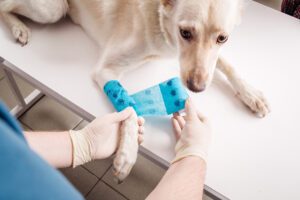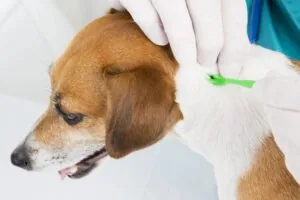Kitten Care 101

Kittens are adorable, adventurous, furry fluff balls that require a lot of time and proper care. It is good to know the basics on training, nutrition, and health care. This article will help you handle the both before and after you get a new kitten.
What you will need:
- Comfortable cat bed
- Food specifically made for kittens
- Litter box & cat litter
- Collar & ID tags
- Cat carrier
- Toys (safe, and not too small)
- Scratching post
- Health exam from your veterinarian (*more details below)
- Grooming brush
Cat-Proofing tips:
- If you have house plants, research if they are toxic to your kitten
- Bundle window cords, electrical cords, etc. Cats will play with anything.
- Keep small items out of their reach. They will chew, play and potential swallow if it’s in their paw’s reach.
- Keep bathroom and laundry rooms closed or keep toilet seat and washer closed. Kittens are known for falling in toilets!
Handling your kitten’s first few days at home is very easy and low key. New kittens are sometimes initially scared and timid, and will often hide until they feel comfortable and curious. Find either a room or a “not busy” area, for your pet’s stuff. Place cat bad in a nice, comfortable spot. Cats do sleep 3/4ths of the day.
Try to find a permanent spot for your litter box, it is always recommended not to move it to avoid confusion for your feline. Kittens will generally use litter boxes by instinct, however, you can help teach her to use it by placing her in the box after meals and play sessions. Make sure the litter box is always available to your kitten and cleaned frequently. It is also important to maintain the same type of litter. Cats do not like change if you must switch litter brands gradually transition to other brand to avoid inappropriate elimination.
Provide quality food that is made for kittens. Every cat is different with its feeding schedule, some eat all their food 2-3 times a day others graze on a bowl throughout the day. Pay attention to your cat’s eating habits and maintain a proper feeding schedule. Ensure your kitten’s food is out of reach for other pets to avoid misfeeding. Don’t forget to keep the water bowl fresh and filled at all times. Contact your veterinarian if your new kitten is not eating, drinking or is showing other signs of illness.
Kittens also require medical visits with a veterinarian a few times in their first few months and should always be checked a few days after arrival. To ensure your kitty is in good health, start early in providing preventative care. Frequent visits also aid in socialization for your kitten. Maintain a vaccine protocol, deworming schedule and use preventative medications to prevent fleas, heartworms and intestinal parasites that your veterinarian recommends. Discuss future procedures such as spaying and neutering your feline. Also, talk about signs and symptoms of potential illnesses so you know the basics.
Once your kitten’s health is cleared by a professional you can let your kitten explore more of its surroundings as well as other pets is applicable. Monitor introduction to ensure it is a positive experience. They may resort to scratching or biting if they are frightened. Playing with your kitten with appropriate toys will help build a bond and to learn good playing habits. Resist playing with your hand or allow the pet to bite you, this can turn into aggressive behavior. Frequent handling and gentle playing are important, especially with young children. Children must also understand that kittens have boundaries and should be taught proper handling as well as reading your cat’s behavior, sometimes they just want to be left alone. Always supervise your kitten’s interactions with children and other pets. The most docile cats are the ones that are handled by young children, it helps them become sweet family pets. Provide appropriate scratching alternatives (such as scratching posts) and reward them with toys, praise or treats when they use them. Take your cat on frequent car rides in the carrier to make traveling and future vet visits manageable and not a nightmare. Pet your new kitten frequently and start using grooming brush often to also initiate good behavior. The more things your kitten is exposed to the more intuitive your feline will be.
Now that you have the basics, it will be only a matter of time before your furry four-legged friend is purring and kneading on you for attention. Kittens grow quickly into grown cats but are always ready to chase a laser pointer or a piece of crumbled up paper. Enjoy the blessed feeling of having a feline companion!
Share This Post
Recent Posts
About Shallowford Animal Hospital
Shallowford Animal Hospital and The Pet Spa at Shallowford are dedicated to the exceptional, compassionate care your pet deserves. Pets hold a very special place in our families, and we treat yours like our own.



